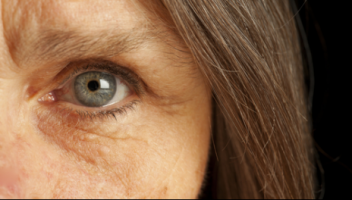- Home
- Editorial
- News
- Practice Guidelines
- Anesthesiology Guidelines
- Cancer Guidelines
- Cardiac Sciences Guidelines
- Critical Care Guidelines
- Dentistry Guidelines
- Dermatology Guidelines
- Diabetes and Endo Guidelines
- Diagnostics Guidelines
- ENT Guidelines
- Featured Practice Guidelines
- Gastroenterology Guidelines
- Geriatrics Guidelines
- Medicine Guidelines
- Nephrology Guidelines
- Neurosciences Guidelines
- Obs and Gynae Guidelines
- Ophthalmology Guidelines
- Orthopaedics Guidelines
- Paediatrics Guidelines
- Psychiatry Guidelines
- Pulmonology Guidelines
- Radiology Guidelines
- Surgery Guidelines
- Urology Guidelines
Diet does matter - Poor diet linked to age-related macular degeneration

USA: Consumption of a diet rich in red and processed meat, high-fat dairy, fried food, and refined grains increases the risk of age-related macular degeneration (AMD) -- leading cause of irreversible vision loss among the elderly, a recent study in the British Journal of Ophthalmology has found. AMD is an irreversible condition that affects central vision and affects common daily activities such as driving.
Shruti Dighe, University at Buffalo, The State University of New York, Buffalo, New York, USA, and colleagues aimed to determine the association between dietary patterns and food groups (used to make them) with the 18-year incidence of AMD. Western dietary pattern is defined as high in consumption of red and processed meat, fried food, refined grains, and high-fat dairy.
The researchers studied the occurrence of early and late AMD over approximately 18 years of follow-up among participants of the Atherosclerosis Risk in Communities (ARIC) Study. Dighe and colleagues used data on 66 different foods that participants self-reported consuming between 1987 and 1995 and identified two diet patterns in this cohort—Western and what researchers commonly refer to as "prudent" (healthy)—that best explained the greatest variation between diets.
Read Also: Single injection of gene therapy may maintain vision in macular degeneration: Study
Key findings of the study include:
- Western (unhealthy) and Prudent (healthy) dietary patterns were identified.
- No significant associations were observed between either dietary pattern and incident any or incident early AMD.
- A threefold higher incidence of late AMD was observed among participants with a Western pattern score above, as compared with below, the median (OR=3.44).
- The risk of developing late AMD was decreased, but not statistically significant, among participants with a Prudent pattern score above, as compared with below, the median (OR=0.51).
Read Also: Long term exposure Vehicle exhaust pollutants increases risk of age related macular degeneration
"Treatment for late, neovascular AMD is invasive and expensive, and there is no treatment for geographic atrophy, the other form of late AMD that also causes vision loss. It is in our best interest to catch this condition early and prevent the development of late AMD," said Dighe. And that's why the finding that diet plays a role in AMD is so intriguing, added Dighe.
A western dietary pattern may be a risk factor for developing late AMD. However, a Western diet was not associated with the development of early AMD in the study.
"What we observed in this study was that people who had no AMD or early AMD at the start of our study and reported frequently consuming unhealthy foods were more likely to develop vison-threatening, late-stage disease approximately 18 years later," said study senior author Amy Millen, an associate professor and associate chair of epidemiology and environmental health at UB.
"Our work provides additional evidence that that diet matters," Millen added. "From a public health standpoint, we can tell people that if you have early AMD, it is likely in your best interest to limit your intake of processed meat, fried food, refined grains, and high-fat dairy to preserve your vision over time."
The study, "Diet patterns and the incidence of age-related macular degeneration in the Atherosclerosis Risk in Communities (ARIC) study," is published in the British Journal of Ophthalmology.

Disclaimer: This site is primarily intended for healthcare professionals. Any content/information on this website does not replace the advice of medical and/or health professionals and should not be construed as medical/diagnostic advice/endorsement or prescription. Use of this site is subject to our terms of use, privacy policy, advertisement policy. © 2020 Minerva Medical Treatment Pvt Ltd